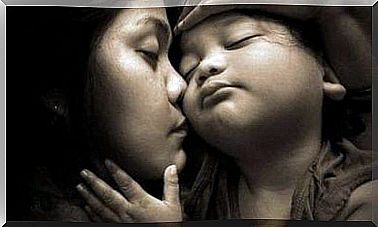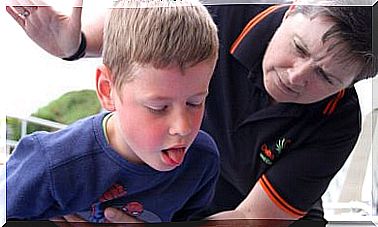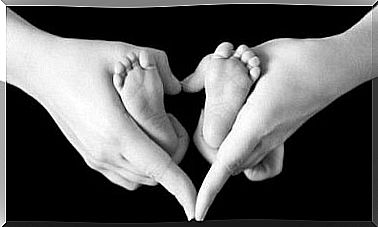Child Egocentrism: Beware!

Egocentrism can occur at a young age. It is very common for children to refuse to share with others or be considerate of the feelings of others. But how should parents respond to self-centeredness in children?
What is egocentrism in children?
If we say about an adult that he is self-centered, it means that he only thinks about himself. They don’t care what others think or feel.
Egocentric phases in children
This quote from Saramago shows how harmful it can be to give free rein to selfishness, in adults and children. For this reason, it is crucial for parents to know how to react when children go through an egocentric phase. This starts with understanding the different stages:
Phase of discovery
During this phase , the child learns from everything and everyone around him. If they see selfish behavior, they will imitate it. This is why it is important to teach your child to share. Lead by example.
Relationship Development Phase
This is developing attachment and friendships in children. According to psychologist Paul-Alexandre Osterrieth, children up to the age of 5 don’t feel the need to share things with others, because when they play together they don’t have a common goal in their head.
Between the ages of 7 and 8, however, the child begins to understand the meaning of cooperation. This means they are able to share with others and develop relationships.
Stage of acceptance
During this phase , the child should be able to demonstrate appropriate social skills. These skills and behaviors are learned through explanation, imitation, preparation, and practice. This is what all parents should strive for in their children.
When does the egocentric phase begin in children?
When do children become self-centered? Many parents ask themselves this question.
According to many studies , the egocentric phase appears in children around 2 or 3 years of age. This is because everyone is naturally self-centered.
However, learning social skills through education and a good upbringing can change this.

From a young age, children think that the world revolves around them. This makes it difficult for them to put themselves in another place.
Children of this age are incapable of showing compassion because they fail to understand that those around them are also people, with their own opinions and needs.
Expressions of egocentrism in children
The egocentric phase in children is often characterized by tantrums. This is due to a lack of understanding among the little ones, which often leads to frustration.
Tantrums, yelling, and insults are ways children try to get what they want. It’s important to help them in this phase so it doesn’t get worse.
How to act during the egocentric phase in children
Parents need to stay positive. Keep in mind that it is possible to change children’s behavior with a lot of encouragement to do the right thing. But how can we do this?
If your child has a tantrum for self-centered reasons, don’t try to calm him down by giving him what he wants. Don’t try to distract your attention with anything.
It is best to remain calm and tell him what to do in as few words as possible.
When the tantrum is over, explain to the child what you expect from him next time. For this to work, a calm and peaceful atmosphere in the home is essential.
The connection with language development
The egocentric phase in children will disappear as their language skills begin to develop. This usually happens around the age of 4 years.
The reason for this is that language helps children socialize and therefore understand different reasoning. This leads to improving development and understanding.

Use encouragement, not coercion
Encouragement, not coercion, should be the motto for parents teaching their children to share. Children adopt the behavior and attitude of their parents. They need to learn that there are other people with their own needs.
That’s why it’s important to make sure your child understands that sharing with others can be fun and interesting. This is something they mainly learn from your example.
Don’t oblige them
Parents should not force their children to give away their toys and possessions if they do not want to. Instead, teach them that sharing is the right thing to do.
These are just a few clues to how to respond to self-centeredness in children. The most important thing to remember is that children learn from examples, both good and bad. This is something parents should not forget.









